In the end of the year Creative FLIP was hosted in Athens, meeting with Vassilis Oikonomou and Maria Dragatakis, facilitators of one of fifteen Learning Labs throughout Europe, engaging students in creative practices and exploring future opportunities the CCS have to offer.
Thursday, December 1 st , we are entering a black box to meet Maria and Vassilis – the ISON black box theatre and inclusive lab, located in the Athenian neighbourhood of Kerameikos which is traditionally a place of manufacturing and creativity (home to pottery making). A few weeks earlier the students of the 3rd Gymnasium Peristeriou first set foot in this black box, starting a journey that would soon end on the theatre stage of their own school.
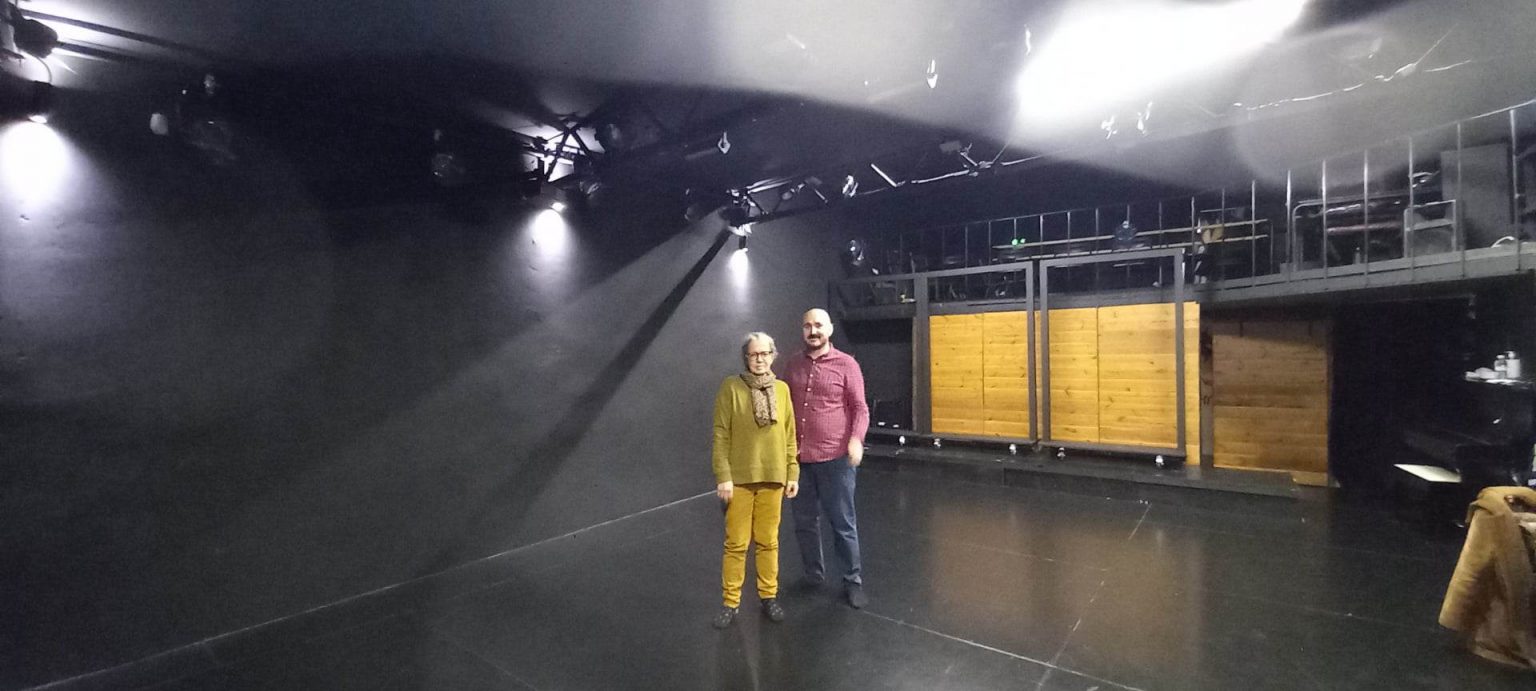
The Greek work “ison” means “equal” and reflects very well the intention of this Learning Lab designed and implemented by THEAMA – inclusive Theatre: each of the students gets the chance to take on a new role and to become part of a professional theatre play. “Art is for all and no one will be excluded based on disability or other social biases.” explains Vassilis Oikonomou, Artistic director.
There is a role for everyone in this play. Vassilis himself stands as a real-life example of this philosophy, being the country’s first professional disabled actor, officially recognized as such.
Throughout a series of workshops that started in October 2022, students were mentored and guided while fully producing their own theatre play. In a first step they brainstormed on the topic of their play and, after thorough discussion and a final vote by the students, a decision was made to build a story around the holocaust and call it Το ημερολόγιο – The Diary.
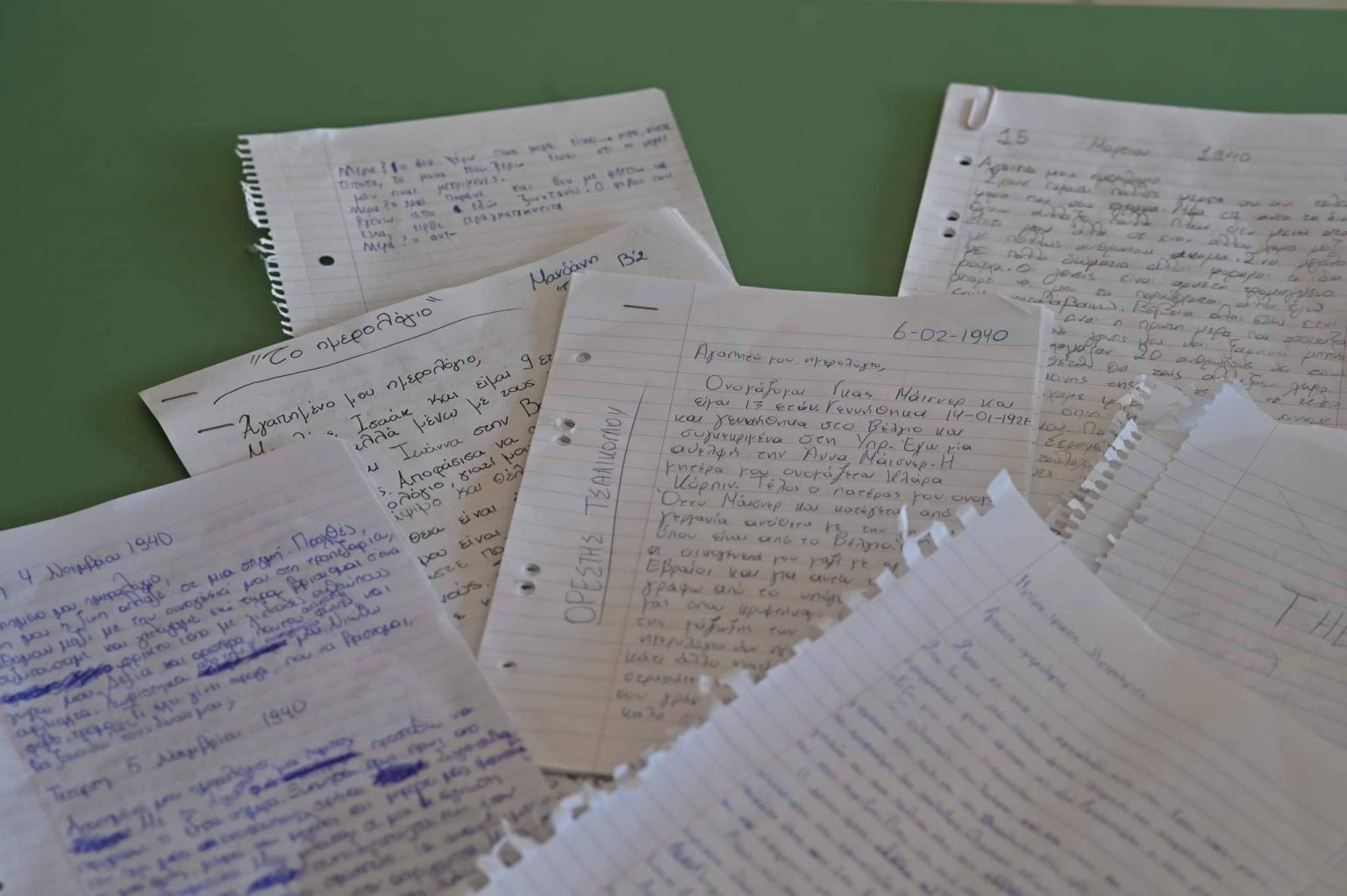
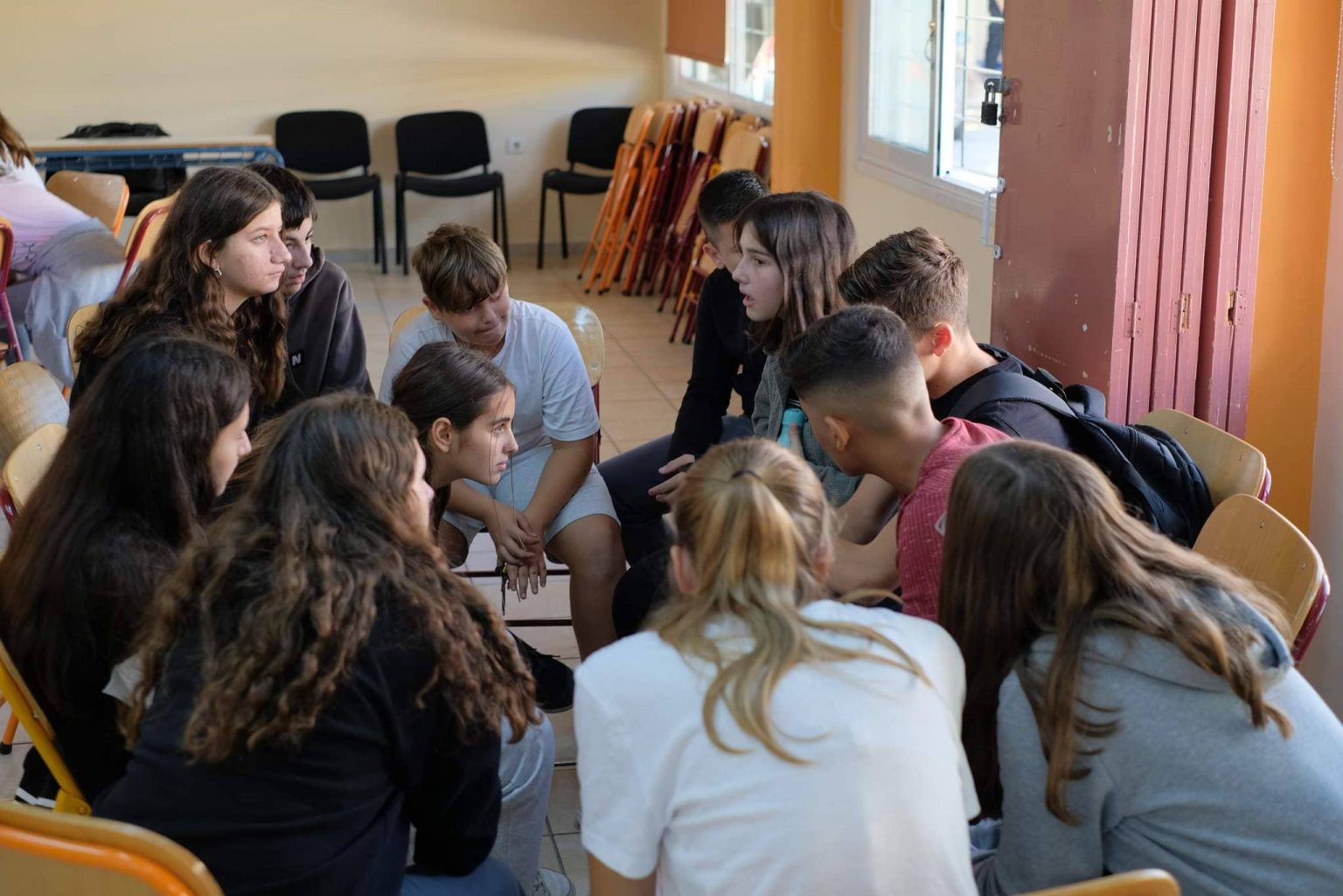
Then time came for everyone to choose a role and find their place in this production. Yannis for example decided to be a photographer, covering the creative process from the first stages up until the final performances. He has a small camera at home and was really impressed with the results he could achieve with the help of the right equipment and the guidance of a professional photographer of the THEAMA team. Nikos on the other hand, chose to be an actor and played one of the main characters which he liked because the rebellious character really suited him, he told us during a short interview. Several girls chose the role of a directress because they preferred pulling the strings from behind the scenes. A few students also preferred to be the assistants which is particularly important when producing inclusive theatre, providing assistance to actors and spectators alike.
Image: Entrance to the 3 rd Gymnasium of Peristeri
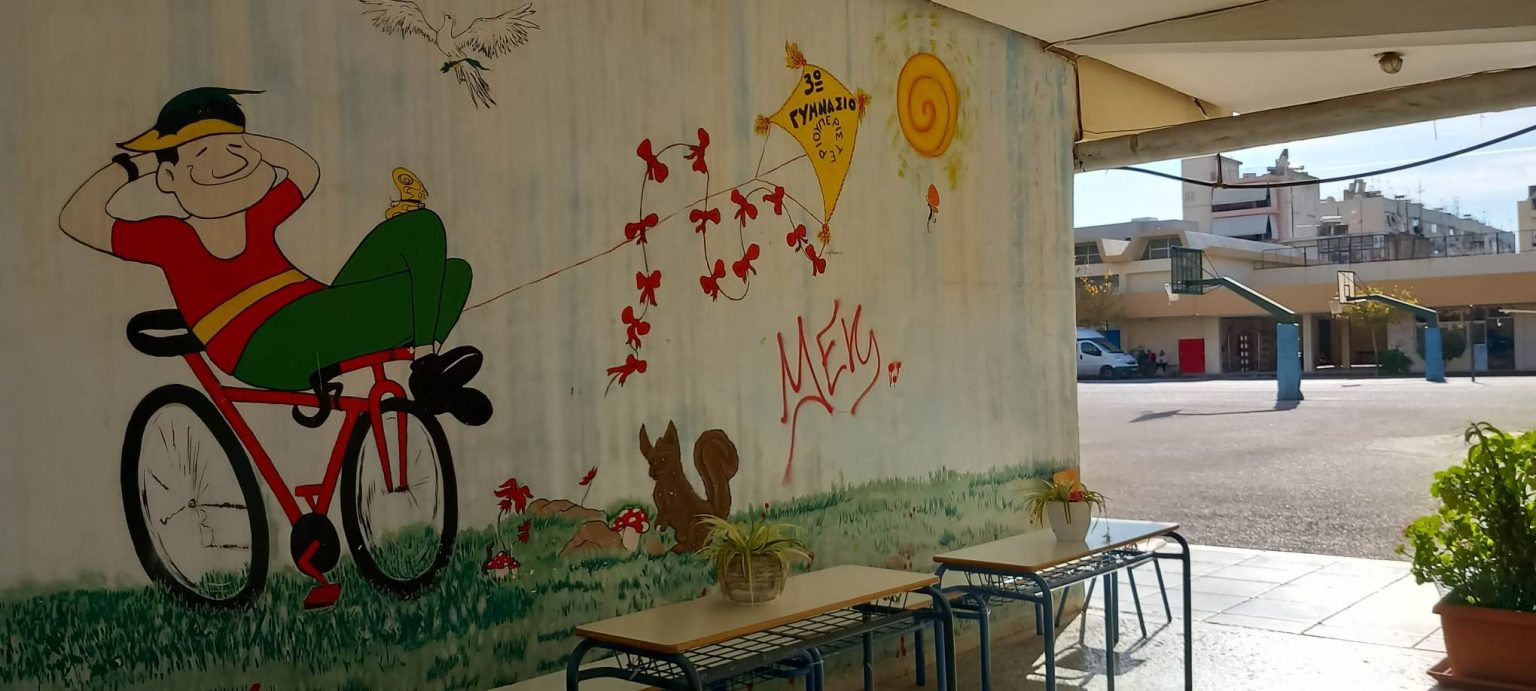
Excitement lay in the air on the day of the performance, 2 nd of December 2022, when the improvised theatre at the 3 rd Gymnasium Peristeriou began to fill with spectators – students from various classes, teachers, parents, the school principle and even the mayor of Peristeri.
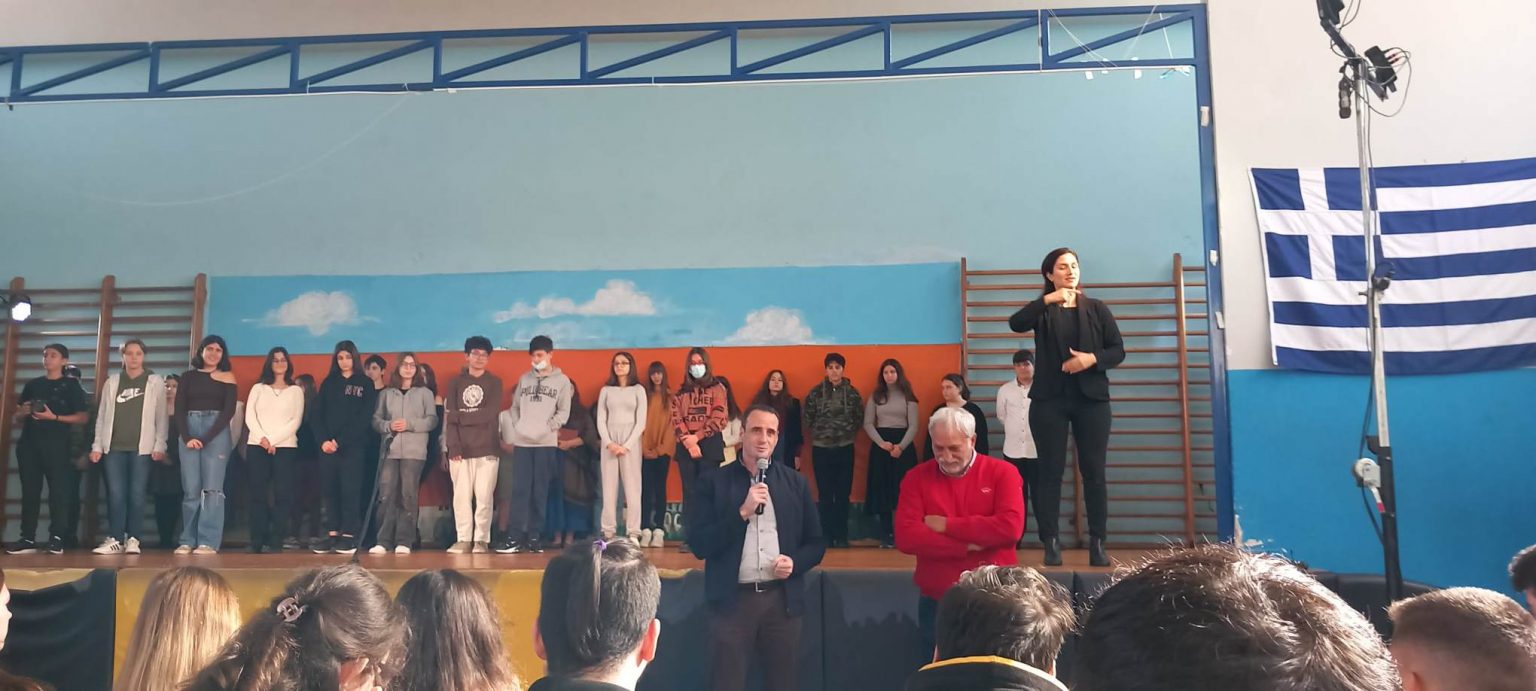
On that day the school’s gymnastic hall functioned as the theatre, equipped with professional lights, sound system, a photographer in the room, video recording and of course a real stage.
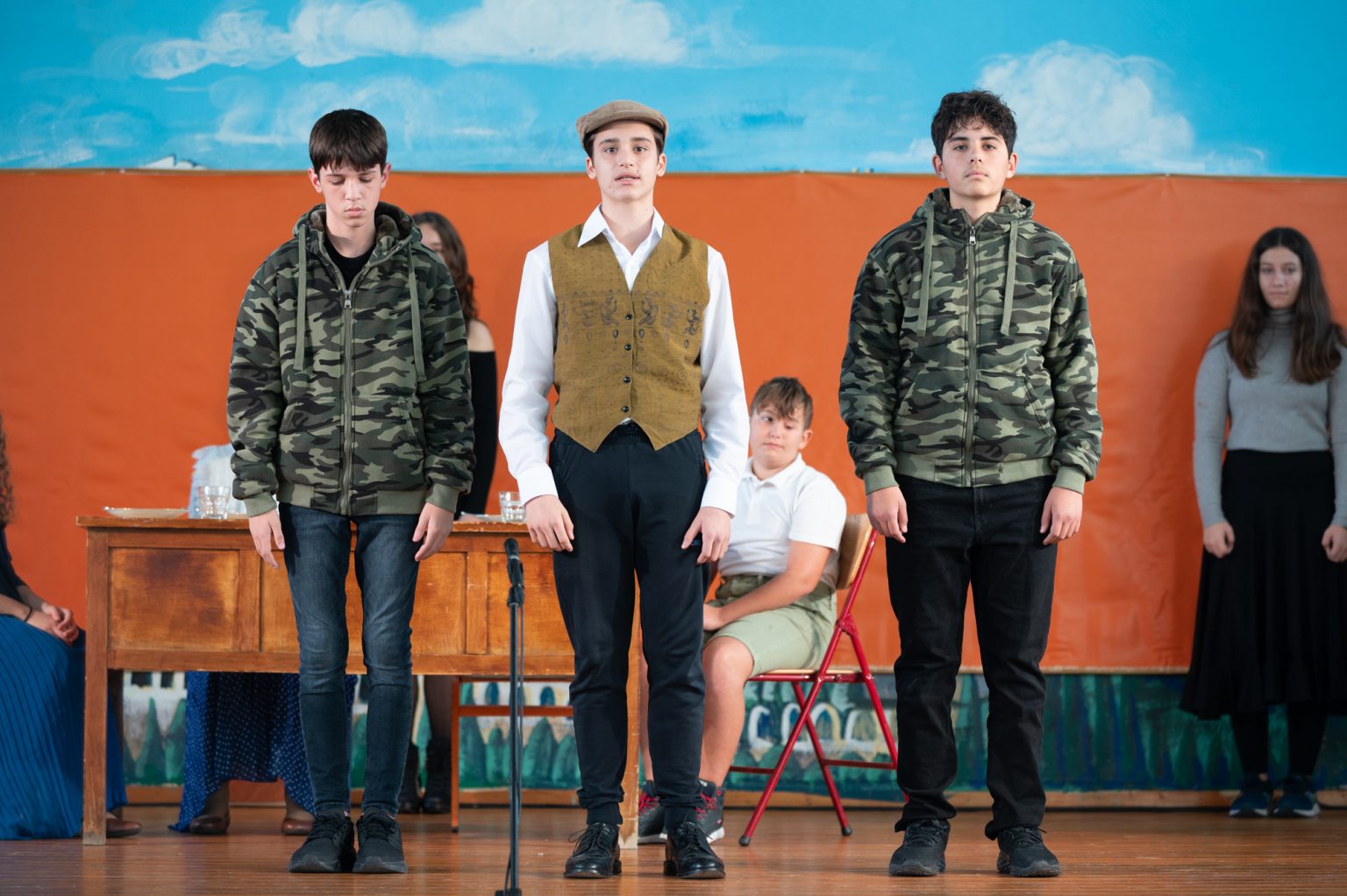
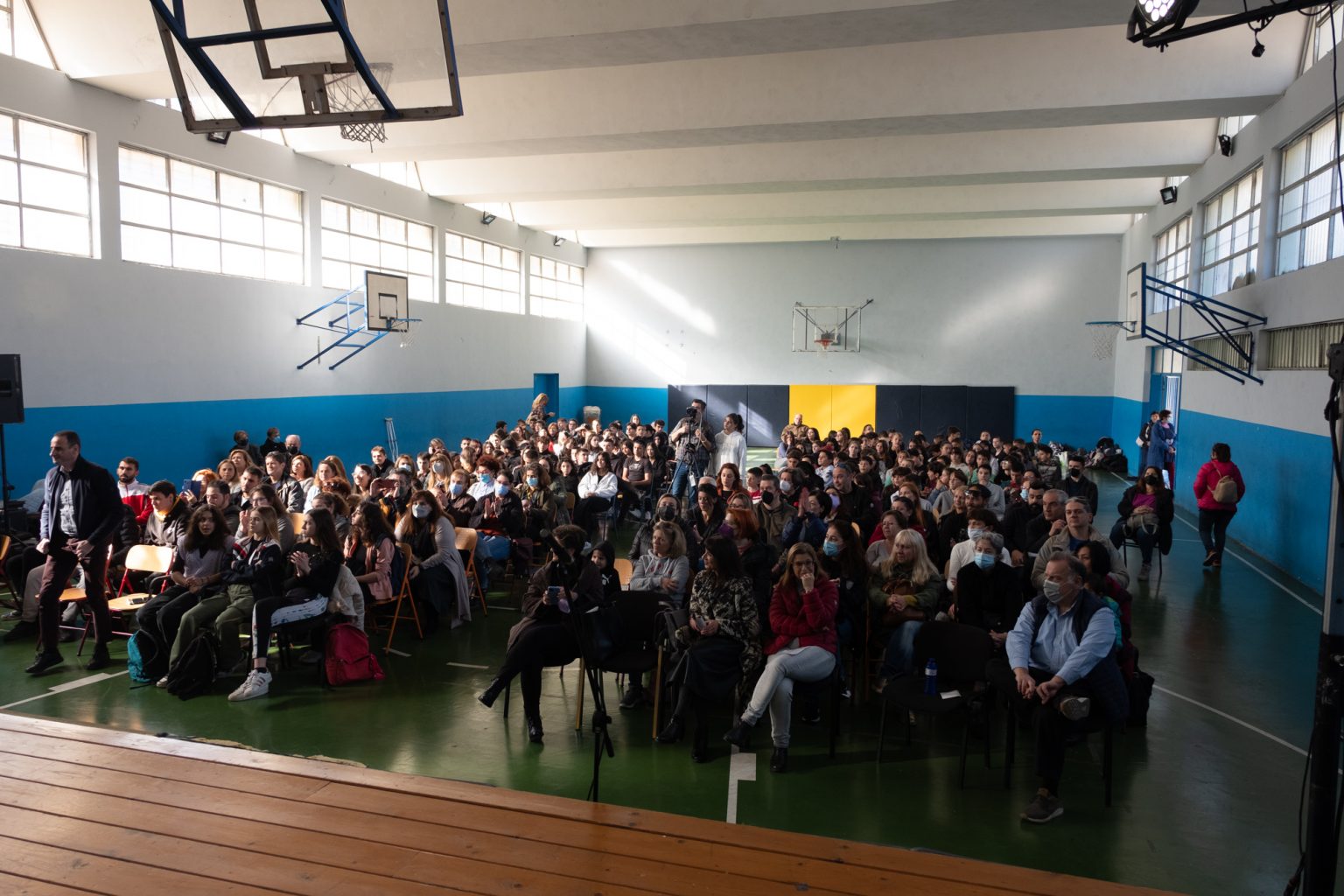
Throughout several weeks the entire team of students, their mentors from THEAMA and teacher Katerina Thanopoulou evolved together and learned from each other. “Each of the students revealed their personality. Some children really flowered.” Vassilis tells us, whose eyes sparkle full with joy and pride when seeing his students on stage wrapped by the sound of clapping and applause. We are using the moment to talk to Vassilis and Maria about their experience with Creative FLIP Learning Labs. You decided to bring the production of a theatre play to a public school. Why? “Activities that foster creative skills have been much reduced in our school system, paired with the struggle for funds at public schools. Creative FLIP Learning Labs came at the right time. Further, Peristeri is a working class neighbourhood and this school’s students do not regularly go to the theatre or experience other types of art. We wanted to make sure they get exposed to this world of culture and the arts. And they opened up to it since their first visit to our black box Theatre. We managed to break the ice and a door, a whole new world opened. However, we’d like to add that we see significance in also fostering such activities in a non-formal learning setting, for example with theatre classes and other workshops as we hold them at ISON theatre. It is also a way of being inclusive because, thinking of refugees for example, not every child in Greece is attending school unfortunately. Obviously theatre classes are a form of arts education, but what about education through the arts? What role does that concept play in your work? “It plays a crucial role because education through the arts gives us a way to educate inclusively. We saw once more how easily anyone can pick up and thrive on theatre skills, even without any prior experience. It is open to all. We also like to emphasize the importance of improvisation in theatre which is key to open up and tackle peripheral issues and societal challenges, allowing for critical thinking and free expression. Theatre is the mirror of society. Vassilis, you told us about your own struggle in the early days of your career, being a professional actor with a physical disability who wouldn’t easily be recognised as such. Did you discuss this topic of inclusion in theatre with the students? “At THEAMA we do work with actors with different types of disabilities. Of course we felt it was importance to discuss this concept, the core of our work, with the students of our Learning Labs. However, we focussed the discussion on the “social model of disability”. Disability is a state, it’s not a problem and the students understood very well that a personal characteristic or feature should not be a reason for anyone to be excluded or exclude themselves from any activity. To give you an example, one of the students has autism and he did a wonderful job as sound engineer of our theatre play. He has an incredible ability and sensitivity to sounds, much more than the other students. If you could repeat or continue this experiment, this Learning Lab, what would be the next step? “We would professionalize this performance, give more space and especially time while leaving the lead in the hands of the students. It takes time to build trust and we would now love to continue the creative process with this group, with place for improvisation on the one hand, and concrete steps towards achieving personal goals of each students on the other hand.





